Introducing our newly appointed GW4-CAT HP Fellows

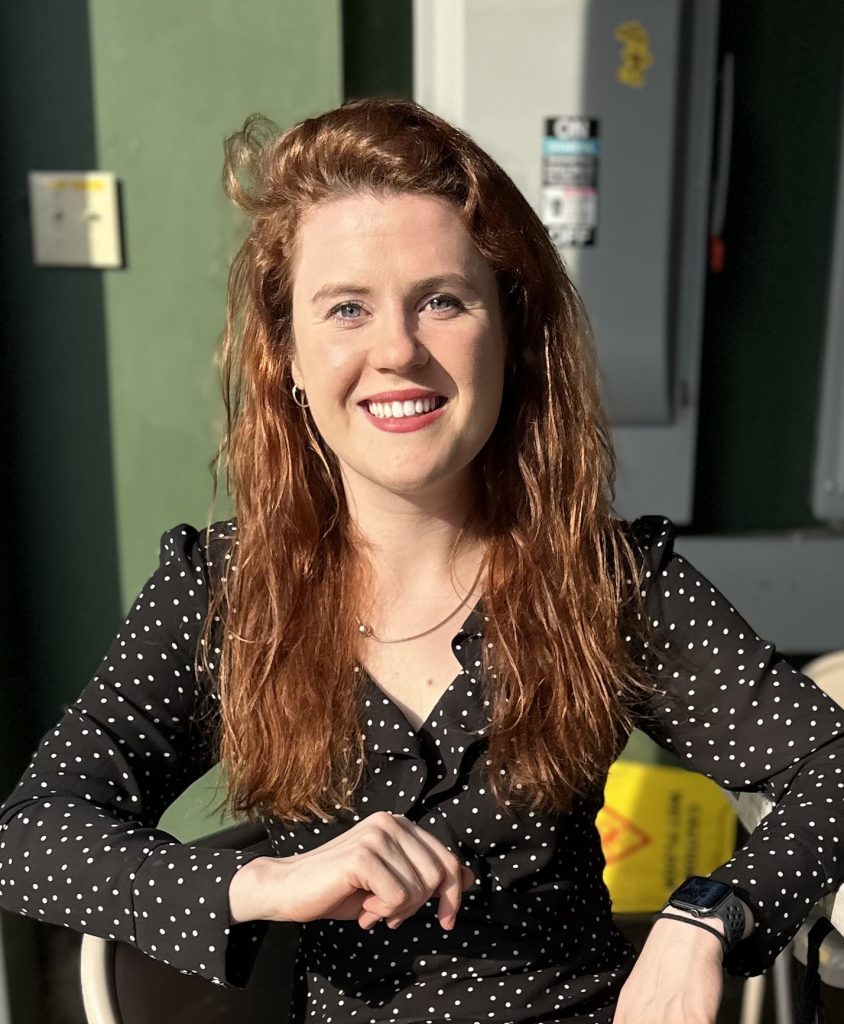
Emily Black
Specialty – Dentistry
I am a Clinical Lecturer in Primary Care Dentistry at the University of Bristol and an NHS General Dental Practitioner. After completing my BDS and an intercalated BSc in Global Health at Bristol, I undertook Academic Dental Foundation Training. This was followed by three years as an NIHR Academic Clinical Fellow, gaining experience across Oral and Maxillofacial Surgery, Paediatric, Restorative, and Special Care Dentistry. I am also a Member of the Faculty of Dental Surgery (RCS Eng).
Alongside my clinical and academic roles, I have developed a strong interest in leadership and education. I co-lead local anaesthetic and surgical extraction teaching in Oral Surgery, act as careers and Dental Foundation Training lead, and supervise undergraduate students treating NHS 111 patients in Urgent Dental Care. I was selected to join the Healthcare Leadership Academy and have contributed to national discussions on dental triage and remote clinical decision-making.
My Wellcome Trust-funded GW4-CAT HP PhD explores whether dental settings can be used to deliver childhood vaccinations opportunistically. Vaccination rates in the UK are falling, and children from underserved communities – who also experience the highest burden of dental disease – are least likely to be fully immunised. My research combines large-scale epidemiological analysis, machine learning predictive modelling, and geospatial mapping to identify high-risk groups, alongside co-production with parents, communities, and dental teams to explore the feasibility of interventions that are practical, acceptable, and culturally sensitive. By integrating preventive healthcare into dental pathways, this work aims to reduce health inequalities, strengthen trust in healthcare, and inform national strategies for innovative vaccine delivery in non-traditional settings.

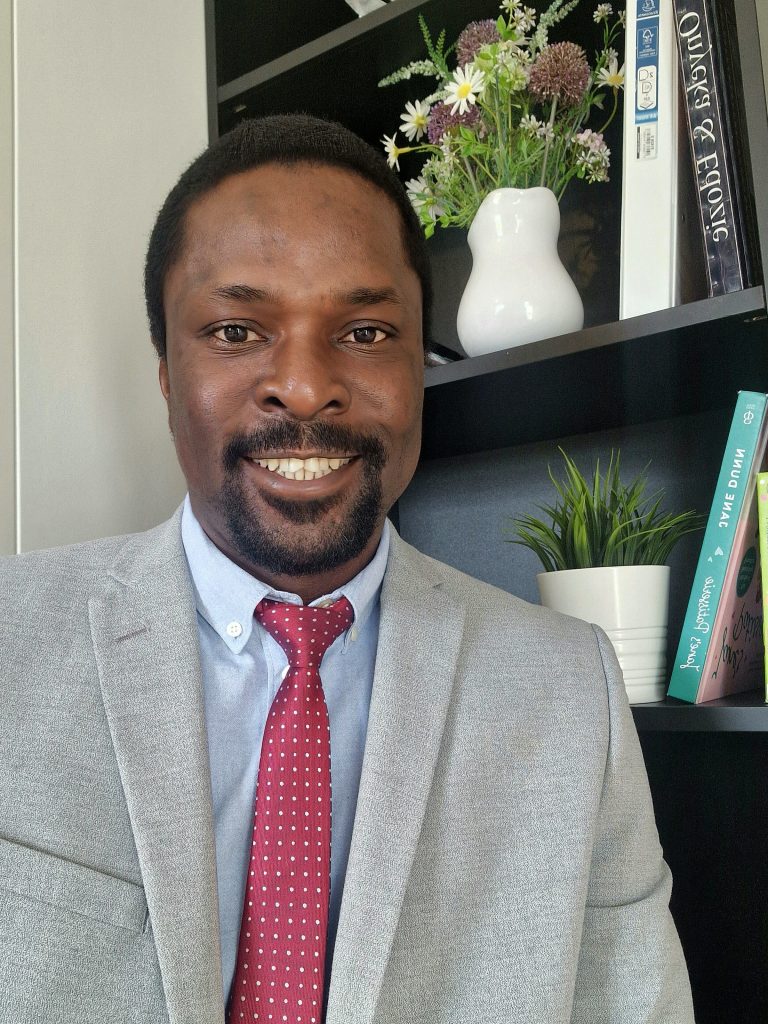
Edozie Iweka
Specialty – Radiography
I am an Advanced Practice Radiographer for Research and Clinical Trials, currently working at the University Hospitals of Derby and Burton NHS Foundation Trust. I qualified as a diagnostic radiographer in 2011, with experience in most medical imaging modalities, becoming a specialist in Computed Tomography (CT) and Magnetic Resonance Imaging (MRI). My current role, which began in 2022, includes coordination of radiology support for Clinical trials and Research registered with the NHS Trust.
My GW4CAT HP PhD fellowship research will be exploring automation of vetting and protocoling of MRI examination requests with embedded explainability. While “vetting” refers to justifying the appropriateness of an MRI request in line with the clinical history provided by a referrer, “protocolling” provides specific details of the MRI examination such as scanning parameters (also known as sequences), patient preparation, specific anatomical coverage and need for contrast administration. These activities are currently undertaken by specialist radiologists and radiographers, and have been identified to be time consuming, repetitive and prone to error. It has also been reported that 20% of outpatients recalled for a repeat imaging were due to protocol errors and about 37% of such errors can be potentially addressed through AI protocol automation. Automating MRI examination vetting and protocols can also reduce the delay between exam request and actual performance which current statistics has estimated to be as high as 24 days for some scans in the UK NHS.
I will therefore be exploring the use of the latest Large Language Models Capabilities pretrained specifically on medical and radiology data to determine appropriateness of MRI referrals and classify examination requests into specific protocols based on clinical information provided. I will also be integrating the latest developments of Natural Language Processing (NLP) Explainability tools to ensure transparency in how the algorithms operate. This will potentially address the “black box” phenomenon common with AI innovations. I will be exploring tools that provide simple, straightforward and medically relevant explanations, such that medical experts can easily understand and ease decision making.

Jonathan Shurlock
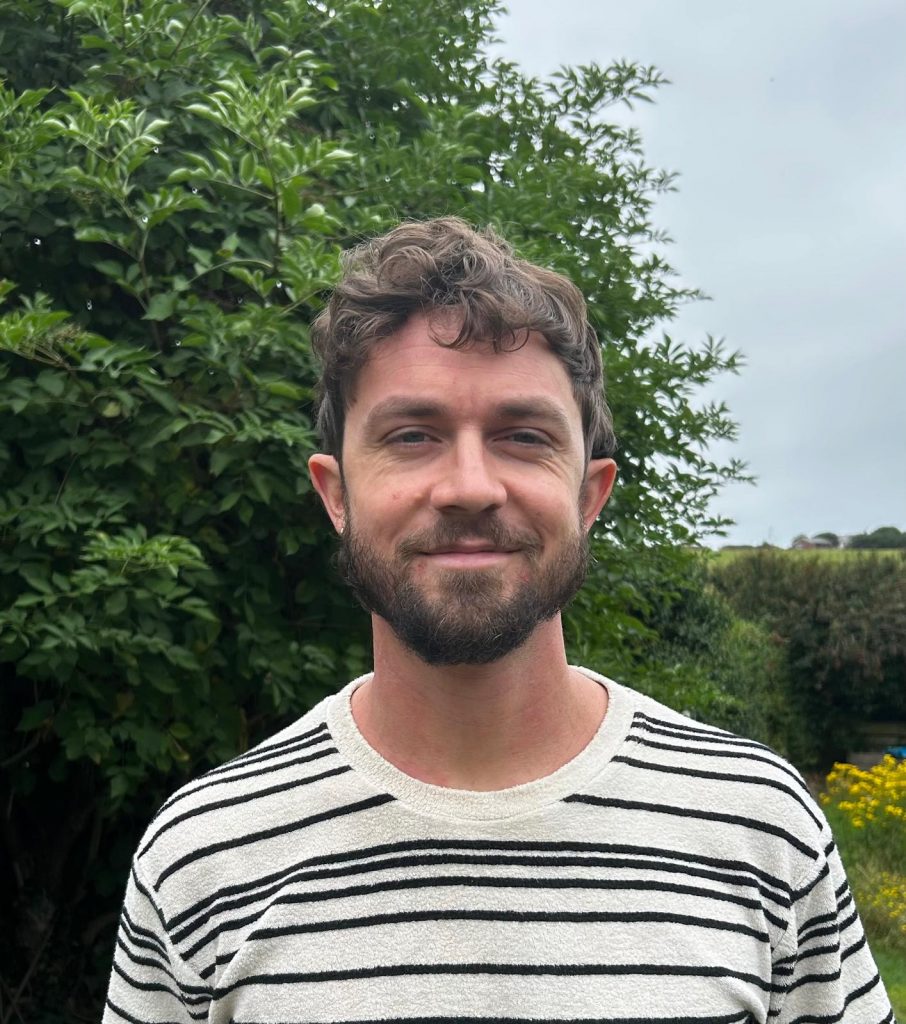
Specialty – Cardiologist


Kate Taylor
Specialty – Dietitian
I am a dietitian working at Royal Devon University Healthcare NHS Foundation Trust. Since starting work as an acute and then rotational dietitian, I have specialised in community dietetics within rehabilitation settings for older adults, and latterly in Interstitial Lung Disease. During an HEE NIHR internship and an NIHR Predoctoral Clinical Academic Fellowship I completed a PG Cert in clinical research and developed my interest in nutrition for healthy ageing.
I am fascinated by the potential interplay between the ageing gut microbiome and metabolism in older adults; particularly in relation to anabolic resistance, sarcopenia and frailty. One proposed link in this gut-muscle axis are SCFAs; metabolites produced by the gut microbiota during the fermentation of fibre. Observational studies document dysbiosis in the gut microbiome of older adults, particularly those with frailty and sarcopenia, that corresponds with a decrease in SCFAs. In a sarcopenic murine model, SCFA administration increased muscle mass, quality and strength and improved insulin sensitivity. Positive effects of supplementation on metabolism have also been noted in human studies, but this has not been explored in older adults particularly in relation to muscle health.
During the GW4-CAT HP PhD programme I will investigate the effect of SCFA on metabolism and muscle health in older adults, using techniques such as stable isotope amino acid tracers, arteriovenous forearm balance and muscle biopsy sampling. I hope that this will increase our understanding of the mechanisms underpinning the gut-muscle axis. If SCFAs influence muscle health, then modulating the gut microbiome may be key in supporting healthy ageing. Supplementing SCFAs may also present a novel intervention in frailty and sarcopenia.
2025-26 Intake of GW4-CAT HP Fellows


Leila Ellis – University of Bristol Fellow
Specialty – Paediatrics
Project Title: Germline susceptibility and immunometabolic pathways contributing to treatment-related neurotoxicity and neurocognitive outcomes in childhood acute lymphoblastic leukaemia
I am a paediatrics trainee in the Severn Deanery with a research interest in the genetic epidemiology of childhood cancer late effects. I completed a bachelor’s degree in Biomedical Sciences at King’s College London, followed by a postgraduate medical degree at Warwick Medical School, and most recently a master’s degree in Healthcare Management, Leadership and Innovation at the University of Plymouth. Through an NIHR-funded Academic Clinical Fellowship, I have undertaken childhood cancer research with the University of Bristol Integrative Cancer Epidemiology Programme and National Child Mortality Database.
During the GW4-CAT HP PhD programme, I will investigate treatment-related neurotoxicity and neurocognitive outcomes in childhood acute lymphoblastic leukaemia (ALL). ALL is the most common childhood cancer. Advances in treatment have resulted in 5-year event-free survival rates greater than 90% for children with newly diagnosed ALL in high-income countries. Efforts are increasingly focused on minimising treatment-related morbidity so survivors can “thrive and not just survive”, as described by the James Lind Alliance Children’s Cancer Priority Setting Partnership. One area of concern is the neurological effects of central nervous system directed therapy which negatively impact functional and quality of life outcomes. Reports suggest 5-10% of children with ALL experience an acute neurological serious adverse event, such as stroke-like syndrome, posterior reversible encephalopathy syndrome, or seizures. Furthermore, around 30-40% of survivors have long-term neurocognitive impairment, with the most impacted domains including attention, processing speed, executive function, learning and memory. The mechanisms underlying these adverse neurological effects remain largely undefined, with few established preventive strategies or effective symptomatic treatments.
This project will involve the analysis of large genetic datasets to identify variants associated with neurotoxicity and neurocognitive outcomes and develop a predictive model that integrates genetic, treatment, and environmental factors to improve risk estimation. In addition, genetically-informed causal inference techniques such as Mendelian randomization will be used to examine immune, inflammatory, and metabolic pathways involved in adverse neurological effects. Finally, advanced neuroimaging will be performed at the Cardiff University Brain Research Imaging Centre to assess the spatial distribution of neuroinflammation in response to different treatment exposures. It is hoped that findings from this work will contribute to better risk stratification, inform the development of personalised treatment strategies, and support early interventions to reduce neurocognitive impairments in childhood cancer survivors.

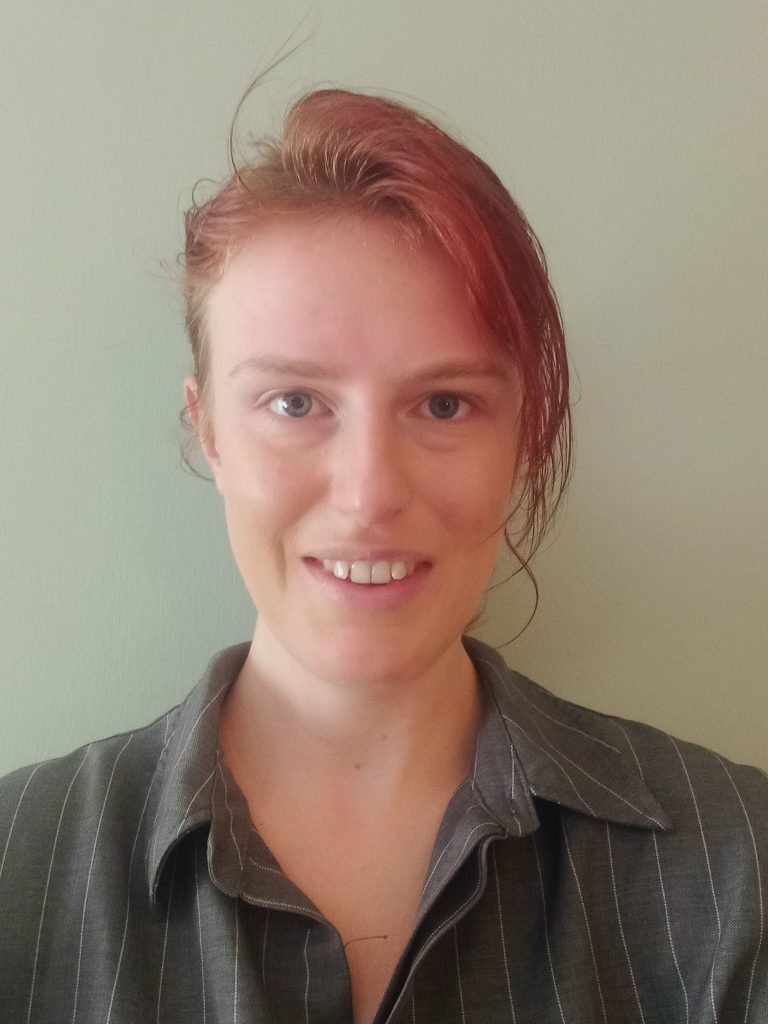
Olivia Harris – University of Bath Fellow
Specialty – Child and Adolescent Mental Health
Project title: Understanding the experiences of parents whose children have anxiety or low mood: using qualitative and quantitative methods to generate new theory
I am a clinical psychologist with a specialty clinical and research interest in child and adolescent mental health. I completed my clinical training at the University of Bath in 2018-2021, where I was researching staff burnout, identity change in psychosis, and experiences of a form of discrimination called epistemic injustice amongst voice hearers. Since qualifying, I have been working in a Generic Child and Adolescent Mental Health service in London, and part of my role has more recently focused on supporting young people and parents to have a voice in how the service is delivered.
Through my clinical work, I became interested in the impact a child’s mental health difficulty can have on their parents. I noticed the high levels of distress parents who I was working alongside were experiencing, as well as noticing the lack of services and support available to them which focused on their wellbeing. I became curious about how we could be supporting parents better in this really challenging time. I realised there is a lack of research and theory that helps us to understand what psychological processes contribute to worse distress, and poorer coping, for parents when their child is struggling with a mental health difficulty. This makes it hard to know what effective support would look like, as we don’t know what drivers are keeping high distress levels going.
During my PhD, I will be using a mix of qualitative and quantitative methods to explore parents’ experiences of having a child with anxiety and/or low mood. This will include interviews and surveys with parents, to ensure findings are based in their lived experiences. I am also planning to use ecological momentary assessment, and single-case experimental design, to quantify and further unpick the relationship between possible psychological maintenance processes, and distress. I hope this will facilitate the development of a research-driven theoretical model of parental distress and coping for parents of children with anxiety and low mood, which in turn can be used to develop more tailored wellbeing support for this group of parents.


Sacha Moore – Cardiff University Fellow
Specialty – Renal Medicine
Project title: From Soft Tissue to Stone: Investigating the Interplay between Systemic Inflammation, Cellular Crosstalk and the Hyaluronan Matrix in Chronic Kidney Disease-associated Vascular Calcification.
I am a Specialty Registrar in Nephrology and Internal Medicine on the Wales Clinical Academic Training (WCAT) scheme in Cardiff. After graduating from the University of Southampton, I completed Academic Foundation Training at the North Wales Clinical Research Centre, earning an MRes in Applied Biomedical Sciences Research with distinction. Following Internal Medicine Training in South-East Wales, I was concomitantly appointed to both Higher Specialty Training in Renal Medicine and the WCAT scheme in 2023.
My primary research interest is understanding the fundamental mechanisms driving vascular calcification and cardiovascular disease in people with chronic kidney disease. In addition to this, I chair NEPHwork (the UK Kidney Association/UK Renal Registry-supported trainee-led research collaborative) and represent resident doctors on the Royal College of Physicians’ Research and Academic Medicine Committee, championing support for clinical academic training UK-wide.
Cardiovascular disease (CVD) is the leading cause of death in chronic kidney disease (CKD), with risk remaining elevated even after adjusting for shared factors like diabetes, hypertension, and dyslipidaemia. Vascular calcification (VC) is highly prevalent in CKD and a key independent driver of cardiovascular morbidity and mortality.
Once thought a passive process of calcium-phosphorus deposition, VC is now recognised as an active, highly cell-regulated process underpinned by vascular smooth muscle cells (VSMCs) in the arterial tunica media transdifferentiating into osteoblast-like cells and depositing calcified matrix. This results in increased arterial stiffness and dysfunction, and downstream effects including heart failure, stroke and peripheral vascular disease. The fundamental mechanisms underlying this osteogenic transdifferentiation remain poorly understood, and there are no effective therapies for VC.
Emerging evidence in atherosclerosis highlights the phenotypic plasticity of VSMCs and suggests this is influenced by their microenvironment, cell-cell and cell-matrix interactions. Using single-cell sequencing and bioinformatic approaches, I aim to define the transcriptomic heterogeneity of VSMCs and other key cell types in both healthy and diseased human arterial tissue, and evaluate cellular crosstalk in this context focusing on matrix as an extrinsic cue of cell phenotype. Functional studies will then assess how targeted modulation of key pathways influences VSMC phenotype and function in vitro.
Generating this novel understanding of the fundamental cellular contributors, mediators and pathways in CKD-associated VC may help identify novel therapeutic targets.


Sam Trethewey – University of Exeter Fellow
Specialty – Public Health
Project title: The impact of rurality and deprivation on mental health problems, access to services and outcomes in young people
I am a public health registrar in the Severn Deanery. Since medical school I became increasingly drawn to clinical academia following my completion of an intercalated degree in cardiovascular research, followed by the Academic Foundation Programme and subsequent posts as a Clinical Research Fellow in both primary and secondary care settings. It was through these early experiences that I developed a range of transferable skills and interests in using different research methodologies in a diverse range of clinical-academic areas.
My most recent role as an NIHR Academic Clinical Fellow in Public Health provided me with a foundation in public health practice alongside a growing passion for research in public mental health. During this time I investigated factors associated with mental health service contact in children and young people. Mental health problems are common and can have lasting impacts on young people and their families, as well as wider socio-economic impacts for society. However, despite its importance, there is an absence of systematic research investigating the mental health needs of young people living in rural and deprived communities in the UK.
During my PhD, I will use a mixed-methods approach to develop our understanding of the impact of rurality and deprivation on the mental health of young people. In addition to reviewing international research and examining linked, multinational, administrative healthcare data and longitudinal cohort study data, I will also carry out complementary quantitative and qualitative studies. This approach will enable me to triangulate findings and provide a clearer understanding of the epidemiology and causal pathways to mental health problems, service use and outcomes in this substantially under-researched population.
By synthesising the evidence and engaging with young people and commissioners, this work will seek to co-develop an evidence-based framework to inform strategies to improve commissioning of services for young people living in rural and remote communities.


Eva Wooding – University of Exeter Fellow
Specialty – Paediatrics
Project title: Determinants of fungal asthma in children.
I am a paediatric registrar in the Peninsula Deanery with interests in fungal immunology and epidemiology. I completed my undergraduate medical training at Peninsula College of Medicine and Dentistry (Universities of Exeter and Plymouth), and hold a Master’s degree in Clinical Education from the University of Plymouth. I have undertaken my Foundation and Paediatric training across the South West, and from 2018 to 2024, I was an Academic Clinical Fellow in Exeter.
My clinical and research interests focus on paediatric infectious diseases and immunology, particularly mycology, respiratory infections, and population health. During my ACF, I contributed to national epidemiological studies, including a British Paediatric Surveillance Unit study on Sydenham’s chorea. At the MRC Centre for Medical Mycology, I secured funding from the Translational Research @ Exeter scheme to investigate the molecular mechanisms behind excessive reactive oxygen species production in immune cells from patients with cystic fibrosis.
My PhD will focus on asthma – the most common chronic condition of childhood. The UK has some of the highest emergency admission and adolescent mortality rates for asthma in Europe, with children living in deprivation experiencing significantly worse outcomes. Exposure to indoor mould exposure and damp environments is linked with more frequent and severe asthma attacks. Fungal sensitisation has also been associated with steroid resistance and more severe asthma. Although some genetic risk factors for fungally-sensitised asthma and possible biomarkers have been identified – primarily in adults – there is limited understanding of these mechanisms in children.
During my PhD, I will investigate genetic susceptibility, immune mechanisms, and environmental triggers in children with asthma and fungal sensitisation. This research will address a critical gap in understanding why some children develop severe, persistent asthma. I will combine analysis of longitudinal cohort data (ALSPAC) with laboratory-based studies of immune responses to better understand the role of fungal sensitisation and exposure on paediatric asthma. This integrated, translational approach will help to understand the genetic, immunological and environmental drivers of fungal asthma in children, improve clinical phenotyping, and support identification of potential treatments.
2024-25 Intake of GW4-CAT HP Fellows

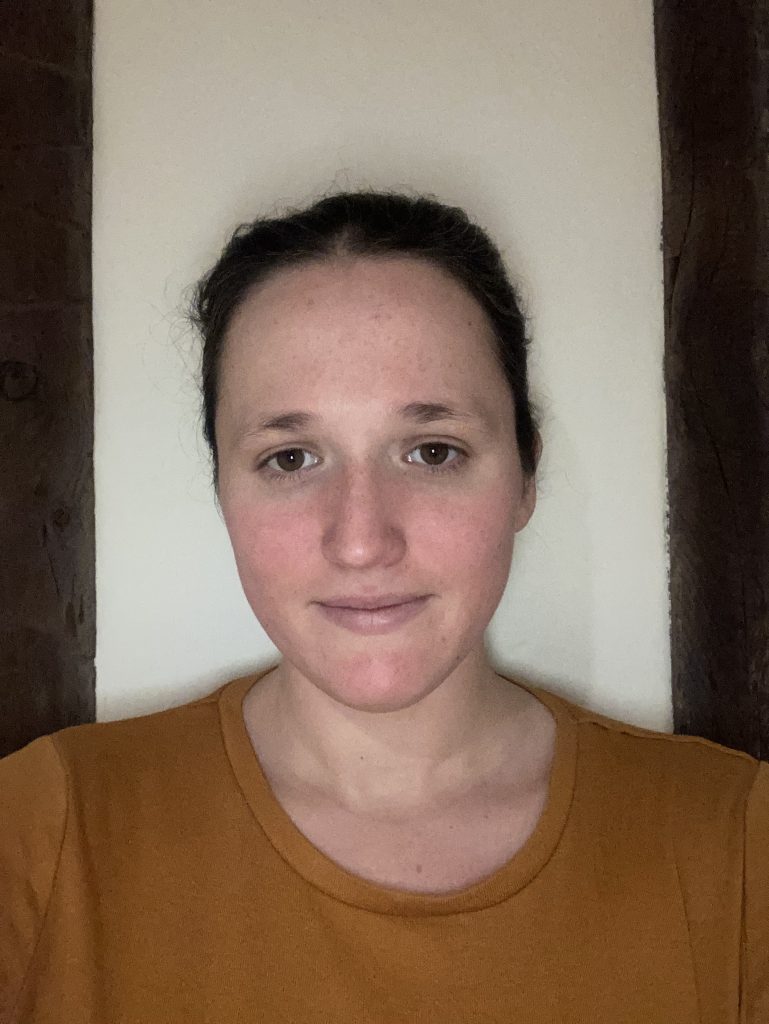
Rachael Barr – University of Bristol Fellow
Specialty – Paediatrics
Project Title: The differences in mucosal and systemic antibody responses to Group A Streptococcus between adults and children
I am a paediatric registrar in the Severn Deanery. I completed my medical degree at the University of Bristol and graduated with distinction in 2015. I always had a passion for tropical medicine and infectious diseases and so undertook a Diploma in Tropical Medicine & Hygiene with the London School of Hygiene & Tropical Medicine in East Africa, completing that with distinction in 2018. This course really sparked my passion and enthusiasm for research. Following this I worked with the Oxford Vaccine Group on a Typhoid Vaccine Trial in Kathmandu, Nepal, before returning to the UK to commence my paediatric training.
After starting my paediatric training I began working with a team in Bristol on Group A Streptococcus. I secured funding for 6 months of full time research via an Elizabeth Blackwell clinical primer scheme to develop my work into Group A Streptococcus.
Group A Strep (GAS) is a bacteria that causes a wide variety of clinical conditions. It can cause simple infections like tonsillitis or cellulitis, and severe infections such as pneumonia, meningitis and septic arthritis. It can also cause sepsis as well as toxin-mediated diseases like scarlet fever and necrotising fasciitis. Furthermore, it causes post-infectious autoimmune complications such as rheumatic fever, rheumatic heart disease and post-streptococcal glomerulonephritis. It has a significant impact causing 500,000 deaths per year and having a morbidity burden equivalent to ¼ of all forms of cancer. It is a WHO priority to develop a globally effective GAS vaccine, however this is challenging for a number of reasons, including that we don’t completely understand what a protective immune response to GAS looks like.
Epidemiologically, we know that GAS affects children more than adults with symptomatic and asymptomatic infections becoming less common as you get older. This suggests that memory immunity to GAS is possible. During my PhD I will look at antibody responses to GAS in infants, children and adults in their serum and saliva to assess for quantitative and functional differences in antibody responses to a range of conserved GAS antigens between different age groups. I will also be using a tonsil organoid model which recapitulates germinal center features in vitro to stimulate with GAS antigens and analyse the humoral and cellular responses to this.
Overall I hope that this project will contribute towards our understanding of protective immune responses to GAS and why adults appear to be better protected from infection. Long term I hope this work will contribute something to a global body of work towards producing a safe and effective GAS vaccine.


Rachel McDowell – University of Bath Fellow
Specialty – Physiotherapist
Project Title: Long-term health in cystic fibrosis post-modulator therapy: exploring cardiovascular risk factors via clinical phenotyping and longitudinal population registry data
I am a clinical specialist physiotherapist based at the All Wales Adults Cystic Fibrosis centre in Cardiff.
I studied Physiotherapy at the University of Birmingham, and I am about to complete a masters in Advanced Cardiorespiratory Physiotherapy at University College London. After qualifying I continued training in Birmingham before moving to London where I specialised in respiratory physiotherapy including intensive care and domiciliary ventilation. Whilst in London at St Bartholomew’s I developed an interest in Cystic Fibrosis (CF) and subsequently moved to Cardiff to work in the All Wales Adults Cystic Fibrosis Centre.
My active areas of interest and research include exercise intolerance, testing and prescription.
Cystic Fibrosis is caused by a defect in the Cystic Fibrosis Transmembrane conductance Regulator (CFTR) protein. The world of CF has rapidly evolved with the advent of CFTR modulator therapies that have shifted the paradigms of CF care. People with CF were previously limited by respiratory disease and their exercise intolerance was largely ventilatory in origin. People with CF are now living longer than ever before and with this non-communicable co-morbidities are increasing. Of particular concern is the emerging burden of cardiovascular disease.
Exercise testing in CF is both a useful disease monitoring tool as well as therapeutic pillar. Understanding exercise intolerance and its implications in CF is growing. During my PhD I plan to investigate the current limitations to exercise and how our understanding of this may guide future care.
I will be based at the Centre for Nutrition Exercise and Metabolism at the University of Bath. My work will involve assessment of real-world activity and energy consumption data. To further phenotype energy requirements, resting metabolism rate and cardiovascular disease risk factors I will use nuclear medicine techniques, metabolomics and skeletal muscle mitochondrial analysis. I will pair my work at the University of Bath with expertise from Cardiff University using UK Cystic Fibrosis Registry data to evaluate current cardiovascular disease risk stratification tools and their applicability to the current CF population.
I hope this work will contribute to the understanding of exercise intolerance, metabolism and cardiovascular health within the CF population and therefore how to promote long-term health in the post-gene modulator era.


Ryan Preece – University of Bristol Fellow
Specialty – Colorectal Surgery
Project Title: Influence of epigenetic changes on the therapeutic response of rectal cancers to neoadjuvant treatment
I am a colorectal surgery trainee in the Severn Deanery. My intercalated degree project at Imperial College London investigated whether mass spectrometry could provide real-time histological diagnosis of colorectal tumour tissue at colonoscopy. This highlighted to me the role that translational ‘omics’ sciences will have on delivering more personalised surgical care to patients in the future. I have since maintained an active research interest, completing an academic foundation programme at St George’s Hospital London before relocating to the South West to complete my surgical training.
Colorectal cancer is the fourth commonest cancer in the UK and concerningly, its incidence is rising in young adults under the age of fifty. These young patients typically present with more advanced tumour stages and have poorer outcomes. Standard care for locally advanced rectal tumours involves neoadjuvant chemoradiotherapy followed by surgical resection of the tumour. However, there is a persistent group of patients who derive no benefit from neoadjuvant therapy and frequently suffer from debilitating bowel, sexual and urinary side effects. Furthermore, patients with poorer response have significantly poorer survival outcomes. Currently, however, clinicians have no good method of identifying which patients will respond to therapy.
The mechanisms underlying rectal cancer chemoradiosensitivity is currently poorly understood. Interest in the influence of epigenetic modifications (heritable traits that alter gene expression without changing the genetic sequence) on therapy resistance for various solid cancers has grown in recent years. My research will focus on understanding how the complex interactions of multiple epigenetic modifications influence therapy resistance in locally advanced rectal cancers. This represents an exciting prospect to both identify patients who are likely to benefit from therapy (sparing others possible toxic side-effects) and potentially improve response rates through targeting such modifications.


Charlotte Richards – University of Bristol Fellow
Specialty – Oral Surgery
Charlotte is a dentist and oral surgery specialty trainee based in Cardiff. After graduating with distinction from the University of Bristol, Charlotte undertook dental foundation and core training posts in oral and maxillofacial surgery before commencing an oral surgery clinical lecturer position at Cardiff University, School of Dentistry. During this time Charlotte has completed a diploma in conscious sedation and postgraduate certificate in clinical education. Charlotte has been fortunate in her postgraduate training to work alongside inspiring clinical academics, and undertake clinical, educational and lab based research, which led to application to the GW4-CAT PhD Fellowship programme.
Project: Using Genome Wide Association Studies to understand the factors involved in serum resistance – a key virulence trait of Streptococcus pneumoniae
Streptococcus pneumoniae causes significant disease worldwide and in 2017 was listed as one of the twelve World Health Organisation (WHO) priority pathogens. S. pneumoniae is a major causative agent in otitis media, pneumonia, meningitis and sepsis. S. pneumoniae is an effective pathogen due to its arsenal of virulence factors. My PhD project will focus on a specific aspect of S. pneumoniae virulence, namely serum resistance, which is the capacity for S. pneumoniae to survive when exposed to the antibacterial components found in serum.
Hypothesis: Specific S. pneumoniae loci exist that determine whether the bacteria can survive the antibacterial effects of serum. These may serve as a target for future therapeutic development.
Research Approach: Using approximately 240 sequenced clinical isolates of S. pneumoniae I will screen the bacteria for survival in human blood. Using a microbial genome wide association (mGWAS) approach, the parts of the genetic code that are associated with serum survival will be identified. I will then test these gene hits using deletion mutants and utilising a variety of both traditional microbiology and novel genetic techniques will characterise the mechanism of action of serum resistance.
Expected Impact: It is hoped by understanding in detail the pathways associated with S. pneumoniae virulence we will be able to predict disease severity, provide tailored patient treatment and develop next generation therapeutics.
2023-24 Intake of GW4-CAT HP Fellows


Richard Armstrong – University of Bristol Fellow
Specialty – Anaesthesia
I am a specialist trainee in Anaesthesia in the Severn Deanery. My interest in research began during an intercalated degree project at the MRC Cognition and Brain Sciences Unit in Cambridge and was reinforced by Clinical Research Fellow posts at the UCL Institute for Human Health and Performance and North Bristol NHS Trust between my Core and Higher training. I have recently completed an NIHR-funded Academic Clinical Fellowship pursuing a theme of research around improving patient outcomes after surgery using data analysis, causal inference techniques and pragmatic clinical trials.
Using multi-omics to investigate mechanisms and prediction of immune-mediated postoperative complications
One in 7 patients develop a serious medical problem after surgery, typically affecting the brain (delirium), heart (atrial fibrillation) and/or kidneys (acute kidney injury). The reasons these complications happen are poorly understood. Our knowledge of which patients are more likely to develop these complications is limited, and currently does not make use of detailed information we can collect on patients, for example their unique genetic make-up and biochemical analysis.
I will try to predict which patients are at most risk of surgical complications using genetic and health information from a large UK population-based study (UK Biobank) and using short-term information from blood samples already taken from patients before and after surgery. I will test whether inflammation (activation of our immune system) after surgery could be an underlying cause of delirium using genetic methods. I will also use brain scans to explore how different parts of the brain change after surgery.
Being able to predict patients at risk of surgical complications and understanding the underlying mechanisms will help develop new ways of treating and preventing surgical complications and will improve patient outcomes.


Mohammed Al-Talib – Cardiff University Fellow
Specialty – Renal Medicine
I am a specialist trainee in Renal medicine based in Bristol. I completed a BA in Medical Sciences at the University of Oxford, and obtained my medical degree from University College London. My first passion was infectious disease, and my interest in research really began while undertaking the East Africa Diploma in Tropical Medicine and Hygiene in 2016, through which I undertook a field placement in Guinea-Bissau studying the prevalence and utility of diagnostic tests for Trachoma infection. Following this, I undertook Core Medical Training in the Severn Deanery and developed a passion for Renal Medicine. Through an NIHR Academic Clinical Fellowship, and by obtaining a Bristol Health Research Charity grant, I developed skills in epidemiological research by leading a follow-up study characterising the psychosocial health of young adults with kidney failure. I have also published qualitative research, including a study exploring the experiences of UK-Chinese individuals with regards to the Covid-19 pandemic.
Through my experiences working clinically on a kidney transplant unit, I found myself drawn to towards the challenges in managing opportunistic infections that can cause significant problems in patients after kidney transplantation. One of these is BK virus, which can cause BK nephropathy in patients after transplant. There is no specific treatment for BK nephropathy: treatment is limited to reducing immunosuppression, which may not work and may provoke rejection of the transplant.
We do not know how or why some people develop BK infection while others do not, or how to predict who will go on to develop BK nephropathy. Through this PhD, we will try to better understand these issues. We will undertake a prospective longitudinal sample collection from kidney transplant recipients in Cardiff and examine the development of immune responses before and during BK infection, and how differences in these between individuals may impact progression to BK nephropathy.
This work will hopefully contribute to our understanding of the mechanisms underlying development of BK nephropathy, help us identify those at greatest risk and reveal potential pathways for the development of specific treatments.


Jacob Day – University of Exeter Fellow
Clinical Specialty – Neurology
I am a neurology registrar in the Peninsula deanery. I studied medicine at Cambridge University (pre-clinical) and Oxford University (clinical) and completed an intercalated degree in Neuroscience. I undertook an Academic Foundation programme in Exeter during which I evaluated individuals with monogenic forms of diabetes and associated neurological symptoms. Building from this, I completed a Masters in Genomic Medicine before obtaining an Academic Clinical Fellowship with Neurology Specialty training. During this I was able to combine my interests in genomics and neurodegenerative disease by working initially on the genetics of Parkinson’s disease in Plymouth and then on the genetic neurological condition, hereditary spastic paraplegia (HSP), with Exeter’s Rare Disease Research group.
HSP causes progressive walking difficulties, often leading to wheelchair use, with frequent other neurological complications. It has many different genetic causes but we still do not know the genetic diagnosis in the majority of patients and there are no disease-modifying treatments available. Advances in genomics research give us the opportunity to identify further HSP genes and provide these families with diagnostic closure as well as the chance to understand how these gene variants lead to neuronal degeneration. During my Academic Clinical Fellowship I was part of the team who identified variants in the gene TMEM63C as a new cause of HSP.
During my PhD I will investigate the role of this new HSP gene using neuronal cell models. I will develop induced pluripotent stem cell-derived neurons to assess the role of the TMEM63C protein in healthy neurons and compare this to TMEM63C knockout neurons. I will determine if changes in specific lipid pathways occur with TMEM63C knockout and compare this to other types of HSP where lipid processing is known to be affected, looking for a potential shared mechanism across genetic subtypes. I will evaluate HSP patient cohorts to assess how common TMEM63C variants are and search for other genetic causes of HSP.
Through this project I hope to improve HSP diagnosis rates and our understanding of the mechanisms of neurodegeneration in HSP. This will ultimately help to identify disease biomarkers and therapeutic targets and may have implications for wider neurodegenerative diseases.

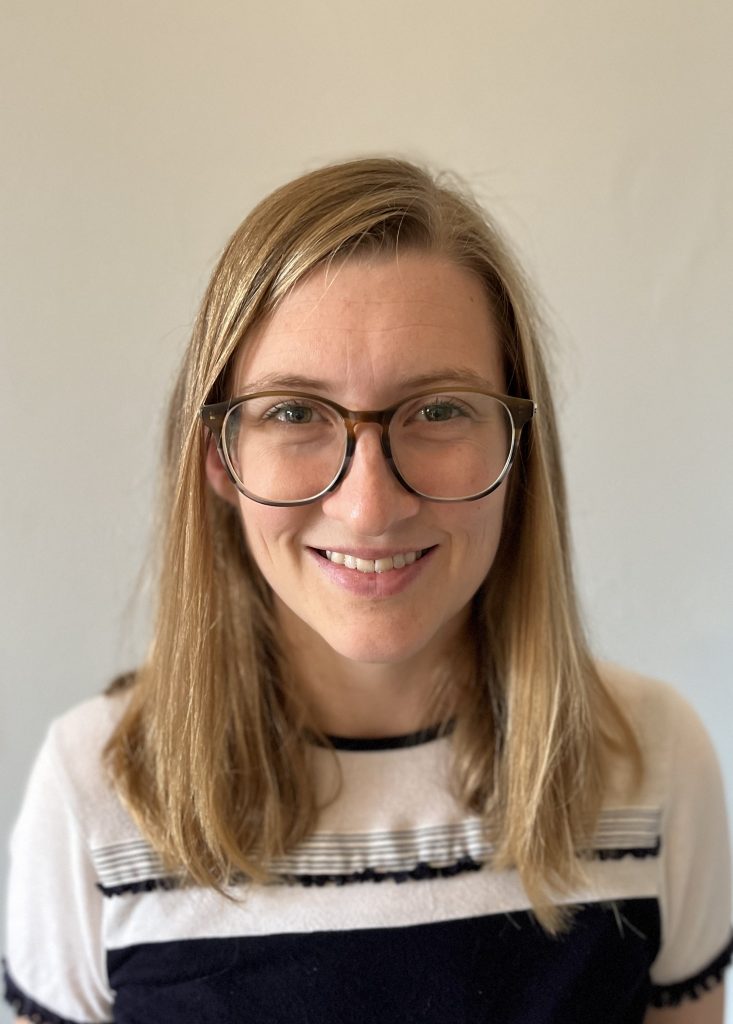
Carina Owen – Cardiff University Fellow
Specialty – Oncology
I am a Medical Oncology registrar based at the Bristol Haematology and Oncology Centre. I am interested in cancer immunotherapy, which is a new type of treatment harnessing the immune system to fight cancer. In my PhD, I aim to uncover mechanisms that tumours use to escape immune recognition, in cases where immunotherapy does not work.
I studied pre-clinical medicine at the University of Oxford, and completed my clinical training at University College London. I became interested in Oncology as a junior doctor at the Royal Marsden Hospital, and then travelled to Sydney for a fellowship with the Melanoma Institute of Australia in 2018. Here I nurtured my growing interest in immunotherapy, working at the interface between clinical practice and translational research as a clinical trials fellow and leading two multi-centre observational studies addressing clinical questions in immunotherapy resistance and toxicity. In my Academic Clinical Fellowship in Bristol, I have investigated the association between germline immune variation and outcomes in melanoma.
In my PhD I will be based in Awen Gallimore’s lab at Cardiff University. Our lab uses a mouse model of cancer immunity which recapitulates the response to immunotherapy in humans. I will conduct in-depth genetic studies to characterize tumours in responders and non-responders, linking genetic and immune factors. I will test my findings in human data from cancer patients treated with immunotherapy. Through this work, I aim to refine patient selection and uncover new treatment targets, to help improve immunotherapy outcomes for patients with cancer.


Catherine Rolls – University of Bristol Fellow
Specialty – Physiotherapist
I am a Hand Therapist based in Bristol. I completed a BA in Biological Sciences at the University of Oxford before obtaining a MSc in Physiotherapy form Kings College London. After qualifying I worked as a rotational physiotherapist in London before moving to Bristol where I worked first in orthopaedics before specialising in Hand Therapy.
Through an HEE NIHR internship and an NIHR Predoctoral Clinical Academic Fellowship I developed an interest in prognostic methodology. Having previously focussed on fracture outcomes I will use my PhD with the GW4 to explore how the exposures; physical activity, obesity and bone density interact independently and with each other to alter fracture risk in mid-life.
Fractures are a major cause of disability and death. Undertaking vigorous physical activity is known to be the main risk factor for fracture in children, and low bone mineral density is the main risk factor for osteoporotic fracture in the elderly, but little is known about the risk factors for fracture between the ages of 30 and 65.
We know that sustaining a fracture in adulthood puts you at a significant risk of future fracture, but we still struggle to identify those at the greatest risk of fracture early enough for bone health interventions to be effective.
I will use a combination of traditional epidemiological techniques and more modern genetic analytical approaches to understand how physical activity and body composition alter fracture risk in mid-life. This work will contribute to our understanding of the mechanisms underlying fracture risk and help with early identification of individuals who could be responsive to physical activity interventions for fracture prevention.

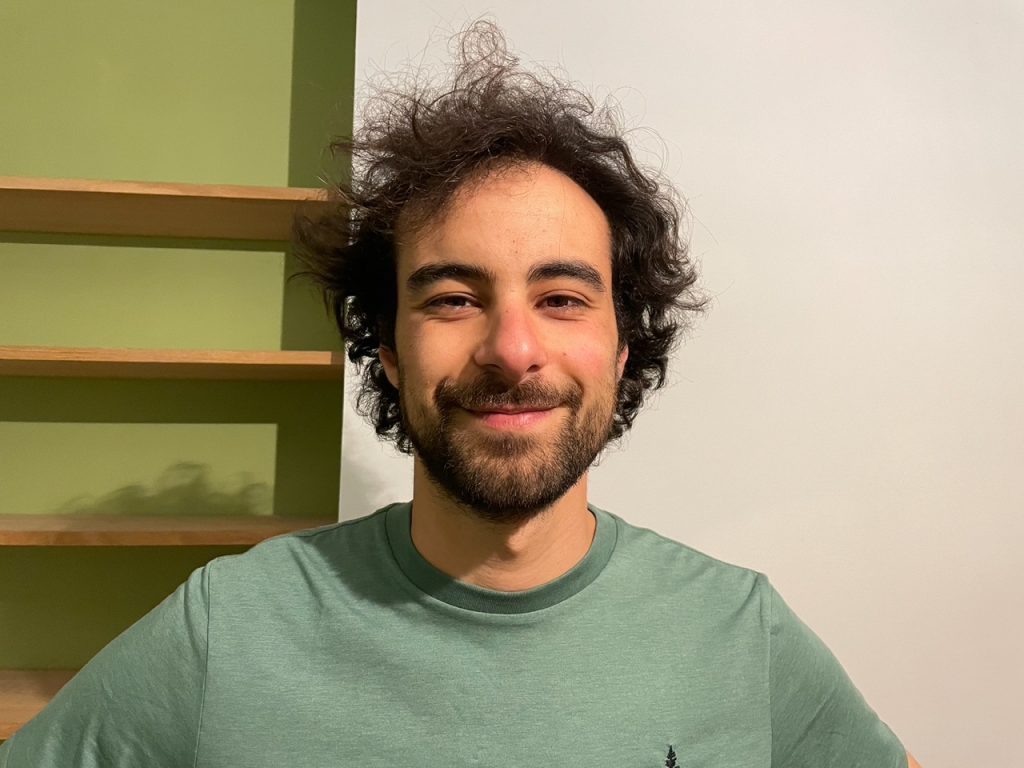
Aws Sadik – University of Bristol Fellow
Specialty – General Psychiatry
A general psychiatry registrar training across Bath and Bristol, I studied medicine at the University of Cambridge, intercalated in infectious diseases, and have worked in Oxford, Reading and Cambridge. My pre-clinical training gave me a passion for research, my clinical training gave me a passion for public health, and my experience as a doctor gave me a passion for psychiatry.
After many unsuccessful applications to academic fellowships, I meet Dheeraj Rai from the University of Bristol and carried out an epidemiological study of the apparent link parental inflammatory bowel disease and autism. Soon afterwards, I was awarded an Academic Clinical Fellowship. This has allowed me to contribute to a range of projects while also studying for a master’s in public health at the University of Exeter.
Autistic people often have more health conditions and a shorter life expectancy than others. The reasons for this are unclear and surely complex. During my PhD I will focus on the possible overuse or underuse of medications.
Firstly, I will describe prescribing patterns in the UK and Sweden and whether negative outcomes are more common for autistic adults. For example, is there more antipsychotic-induced weight gain or a failure of statins to prevent heart attacks? Secondly, I aim to study whether side effects could be reduced by using an individual’s genetic information to guide medication decisions. Finally, I plan to investigate whether certain genes or biological pathways linked to autism are also likely to be associated with health conditions. Together, I hope this work will help in understanding and overcoming the health inequalities affecting autistic people.


Nicholas Sunderland – University of Bristol Fellow
Specialty – Cardiology
I am a specialist trainee in Cardiology based at the Bristol Heart Institute. I graduated in medicine from the University of Oxford in 2013. During my undergraduate training I undertook research into the effect of statins on cardiac autonomic control in a rat model of hypertension. I then spent two years at King’s College Hospital, London, training on the Academic Cardiology Foundation Programme. Working at the James Black Cardiology Research Centre I conducted work investigating the role of platelet derived micro-RNAs in cardiovascular disease. After completing core medical training in acute & general medicine in South London I joined the Auckland Bioengineering Institute, New Zealand, as a cardiac electrophysiology research fellow, looking at inverse intracardiac mapping in atrial fibrillation and developing novel intracardiac EMG signal processing techniques.
I subsequently was appointed to an NIHR Academic Clinic Fellow and cardiology registrar post at the Bristol Heart Institute. Through my clinical work I have developed a keen interest in heart failure and device (pacemaker) therapy. My research has focused on big data approaches to better understanding cardiovascular disease – utilising linked datasets spanning primary, secondary and community care, as well as developing natural language processing algorithms to better utilise existing real world radiology data.
I want to expand my research and computational approaches into understanding the genetic basis of heart failure. My project will use human genetics and longitudinal datasets to understand heart failure risk, with a focus on the role of adverse body composition (excess fat). I will utilize genetic data from large populations (the HERMES consortium, UK BioBank, and the Avon Longitudinal Study of Parents and Children – ALSPAC) and hope to identify specific biological pathways that link excess fat to the development of heart failure and disease progression thereafter. This information could potentially be used to identify new drug targets or treatments to prevent or slow the progression of heart failure, ultimately improving outcomes for individuals with this condition.
2022-23 Intake of GW4-CAT HP Fellows


Kathryn Fleming – University of Bristol Fellow
Specialty – Haematology
Katy is a specialist trainee in haematology. She studied medicine at the University of Edinburgh, where she also completed an intercalated degree in Genetics. This sparked a longstanding passion for bioinformatics and genomics. After finishing her Foundation and Core Medical Training in London, she spent some time working abroad in Australia. She began a NIHR funded academic clinical fellowship in Bristol to begin haematology specialty training.
Through her PhD, with the GW4 and Amulic lab at the University of Bristol, Katy hopes to better understand neutrophil development and function. She is particularly interested in how metabolism and metabolic rewiring impacts neutrophil function and development. There is plasticity in the way neutrophils utilise major metabolic pathways and these are altered a) throughout their development in health and b) during pathogenic states in disease; manipulation of these pathways could be used for therapeutic purposes.
Metabolic determinants of neutrophil development and function
Neutrophils are the first line of defence against pathogens and the most abundant leucocyte in the bloodstream. Understanding how neutrophil development occurs is crucial to their function
This work will utilise initially an epidemiological approach to identify new genes which may be implicated in neutrophil phenotypes, followed by a laboratory-based analysis to study the biological function of some of these genes.
It will also study neutrophil transcriptomics in a disease state. Previous studies have implicated neutrophils in the development of cerebral malaria, a severe clinical presentation of malaria associated with significant morbidity and mortality. How neutrophils contribute to this pathology is yet unknown. Looking at single cell sequencing and metabolomic assays in neutrophils of Malawian children with cerebral malaria.


Daniel Osborne – University of Bristol Fellow
Specialty – Orthoptics
Daniel is an orthoptist aiming to understand how a common childhood eye disease – strabismus – affects mental health. Poor mental health is one of the largest causes of disability worldwide. Affected individuals are more likely to experience physical and social symptoms and disadvantages. People with strabismus may be more likely to have a mental health condition such as depression and anxiety. This fellowship will use population and genetic epidemiology techniques to find out if strabismus causes poor mental health and what social and physical mechanisms underpin the relationship.
In 2014, Daniel completed training as an orthoptist in the University of Sheffield, UK. He worked as an orthoptist in University Hospital Southampton and completed an NIHR Pre-Doctoral Clinical Academic Fellowship at the University of Southampton, gaining the Gift of Sight Clinical Research Award for work stemming from that fellowship. Today, Daniel is an advocate for patient and public involvement in clinical research. He will use his GW4 CAT HP fellowship to build a clinical academic career throughout which he will continue to champion, and improve care for, children with eye disease.
2021-22 Intake of GW4-CAT Fellows


Giles Dixon – University of Exeter Fellow
Clinical Specialty – Respiratory Medicine
I am a Specialist Trainee in Respiratory Medicine and will be investigating how we can predict and track the course of Interstitial Lung Disease (ILD). ILD is a devastating condition which causes scarring on the lungs and results in 1% of all deaths in the UK. I aim to understand how we can predict who will develop worsening (progressive) disease and how we can track the course of the disease over time.
My interest in respiratory disease began at The University of Sheffield when I completed an undergraduate BMedSci at the MRC Centre for Developmental Biology. I achieved a 1st Class Honours research degree investigating novel imaging techniques to visualise neutrophil biology in a zebrafish model of inflammation. Through my Academic Foundation Programme at the University of Bristol I worked at the Academic Respiratory Unit, investigating the role of pleural fluid procalcitonin and lymphocyte subset analysis in pleural effusions.
Exploring the application of machine learning to characterise the driving mechanisms and predict the progression of fibrotic ILD
During my GW4 Wellcome Trust Fellowship I will try to understand why some people diagnosed with ILD will develop progressive disease whereas others will not. I am interested in how we can use machine learning to analyse CT scans using a process called quantitative CT (qCT) to provide additional insight into the mechanisms behind the disease.
I will collate a comprehensive anonymised database of patients with fibrosing ILD across the Southwest and collate lung function, blood test and novel imaging data. I will then utilise a machine learning approach to understand which factors can help to predict prognosis.
My retrospective work will inform the design of a prospective clinical study where I will monitor disease progression over time using qCT scanning and compare this to more traditional methods of monitoring the disease. I will also utilise novel imaging techniques including specific radiolabelled ligands and markers of endothelial health to understand the driving mechanisms of disease progression.
It is hoped by building a greater understanding of disease mechanisms that we can provide a more personalised approach to patient care and aid the development of novel treatments.


Lowri Allen – Cardiff University Fellow
Clinical Specialty – Diabetes and Endocrinology
Lowri Allen is a clinical trainee in Diabetes and Endocrinology in South Wales. During her medical training at the University of Edinburgh, she completed an intercalated degree in Pharmacology. After graduating with honours in 2013, she completed academic foundation training in South East Scotland, before moving to South Wales in 2015. As an academic core medical trainee she was awarded a grant from the Diabetes Research Wellness Foundation which she used to establish an e-cohort of just under 200, 000 pregnancies in Wales, to describe pregnancy outcomes in type 1 diabetes as compared with pregnancy outcomes in women without type 1 diabetes. She was subsequently appointed to the Welsh Clinical Academic Track (WCAT) programme, which has allowed her to further explore her interest in pregnancy in type 1 diabetes, and in particular to describe outcomes in teenage pregnancies in type 1 diabetes.
Through a PhD, Lowri hopes to further explore her interest in pregnancy in type 1 diabetes. She is particularly interested in understanding how the combination of genetics and the intrauterine environment influence the risk of the offspring of those affected by type 1 diabetes developing type 1 diabetes themselves during childhood.
A study of the relative protection against transmission of type 1 diabetes amongst the offspring of mothers with type 1 diabetes
Background: Type 1 diabetes is a lifelong, incurable condition associated with many possible complications, especially if blood sugar levels are poorly controlled. Children with a family history of type 1 diabetes are at increased risk of type 1 diabetes. However, the risk is twice as high if the child’s father has type 1 diabetes compared with if the mother has type 1 diabetes. The reasons for this are unclear.
Approach: Using data from large cohorts, we will compare the genetic risk score for type 1 diabetes between the children of mothers with type 1 diabetes who develop the disease themselves and other children with type 1 diabetes. We will explore the impact of environmental factors on the risk of type 1 diabetes in children of mothers and fathers with type 1 diabetes. We are particularly interested in whether children of mothers with poorly controlled type 1 diabetes during pregnancy, who are exposed to higher blood sugar levels, might be less likely to develop type 1 diabetes.
Expected impact: Understanding factors that increase the risk of developing type 1 diabetes may help us identify strategies to reduce the likelihood of children at high risk of type 1 diabetes developing the disease.


Naomi Cornish – University of Bristol Fellow
Clinical Specialty – Haematology
I am a Specialist Trainee in Haematology. My enthusiasm for research began with an intercalated BSc in Medical Genetics at Cardiff University, which was supported by a Wolfson Foundation Award. I was subsequently able to develop my experience of genomics research as a result of the Wellcome Trust-funded Elizabeth Blackwell Institute Clinical Primer Scheme at the University of Bristol, when I undertook a project which investigated the mechanisms underlying a rare inherited blood disorder. I hope to use my GW4-CAT fellowship to explore the genetic basis of haematological disease in the context of other common health problems.
Genomic Insights into Cancer-associated Venous Thromboembolic Disease
People who have cancer are at significant risk of developing a venous thromboembolism (a blood clot) as a complication of their illness and this is a major cause of morbidity and mortality. However, the risk of cancer-associated venous thromboembolism (VTE) varies greatly between individuals due to a complex interplay between inherited and acquired risk factors.
While anticoagulant therapy (which thins the blood) can reduce the chance of these blood clots occurring; there is an increased risk of bleeding associated with these medications. It is therefore important to identify which patients with cancer are at highest risk of VTE, so that preventative therapy can be selectively offered to those who have the greatest potential benefit to gain from it.
During my PhD fellowship I aim to explore the genetic basis of cancer-associated VTE. I plan to undertake an epidemiological approach to identify new genes which may be implicated in this important health problem, followed by a laboratory-based analysis to study the biological function of some of these genes.
This work will hopefully contribute to our understanding of the mechanisms underlying cancer-associated VTE and help efforts to accurately risk-stratify and manage patients who may develop this condition.



